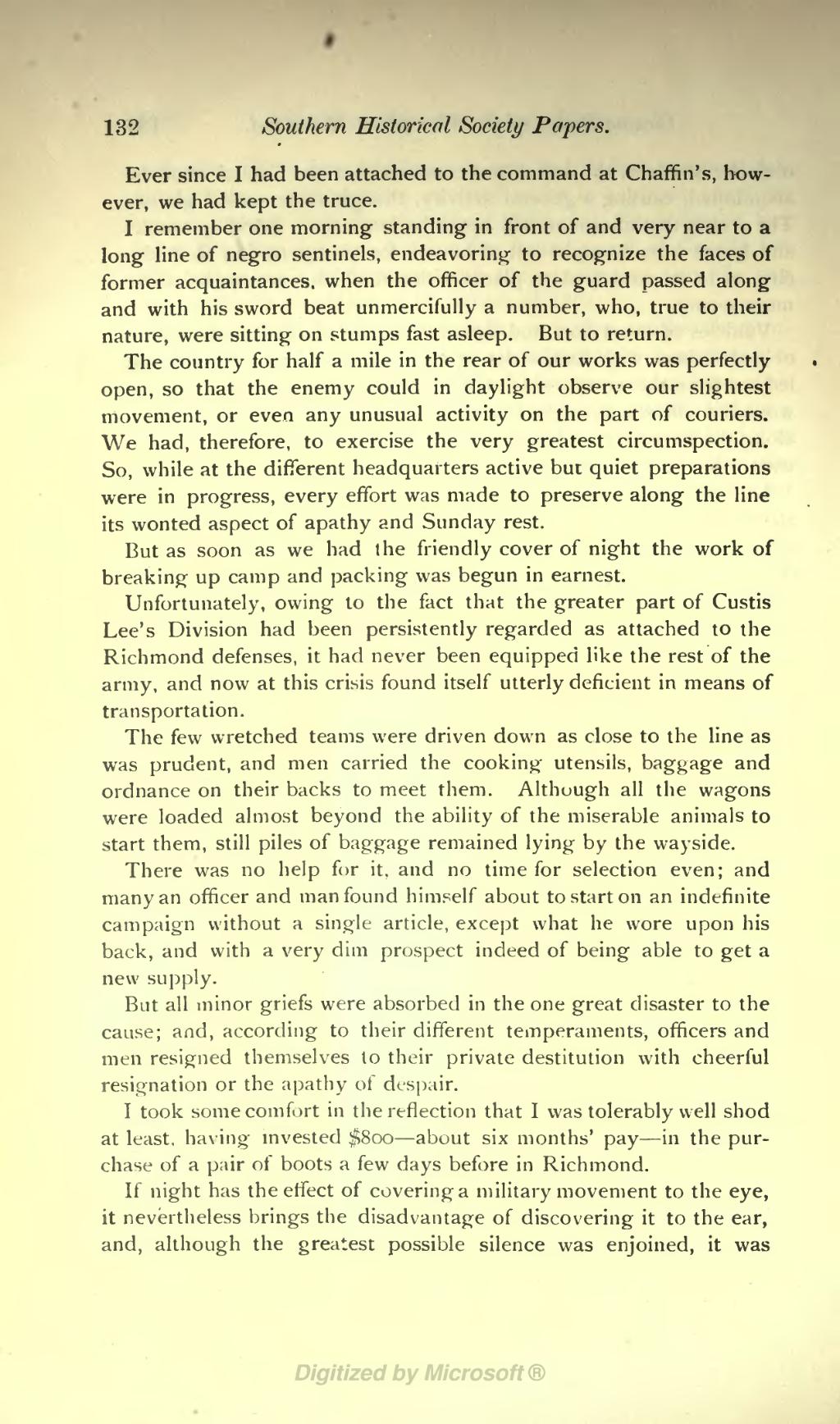132 Southern Historical Society Papers.
Ever since I had been attached to the command at Chaffin's, how- ever, we had kept the truce.
I remember one morning standing in front of and very near to a long line of negro sentinels, endeavoring to recognize the faces of former acquaintances, when the officer of the guard passed along and with his sword beat unmercifully a number, who, true to their nature, were sitting on stumps fast asleep. But to return.
The country for half a mile in the rear of our works was perfectly open, so that the enemy could in daylight observe our slightest movement, or even any unusual activity on the part of couriers. We had, therefore, to exercise the very greatest circumspection. So, while at the different headquarters active but quiet preparations were in progress, every effort was made to preserve along the line its wonted aspect of apathy and Sunday rest.
But as soon as we had the friendly cover of night the work of breaking up camp and packing was begun in earnest.
Unfortunately, owing to the fact that the greater part of Custis Lee's Division had been persistently regarded as attached to the Richmond defenses, it had never been equipped like the rest of the army, and now at this crisis found itself utterly deficient in means of transportation.
The few wretched teams were driven down as close to the line as was prudent, and men carried the cooking utensils, baggage and ordnance on their backs to meet them. Although all the wagons were loaded almost beyond the ability of the miserable animals to start them, still piles of baggage remained lying by the wayside.
There was no help for it, and no time for selection even; and many an officer and man found himself about to start on an indefinite campaign without a single article, except what he wore upon his back, and with a very dim prospect indeed of being able to get a new supply.
But all minor griefs were absorbed in the one great disaster to the cause; and, according to their different temperaments, officers and men resigned themselves lo their private destitution with cheerful resignation or the apathy of despair.
I took some comfort in the reflection that I was tolerably well shod at least, having invested $800 about six months' pay in the pur- chase of a pair of boots a few days before in Richmond.
If night has the effect of covering a military movement to the eye, it nevertheless brings the disadvantage of discovering it to the ear, and, although the greatest possible silence was enjoined, it was
